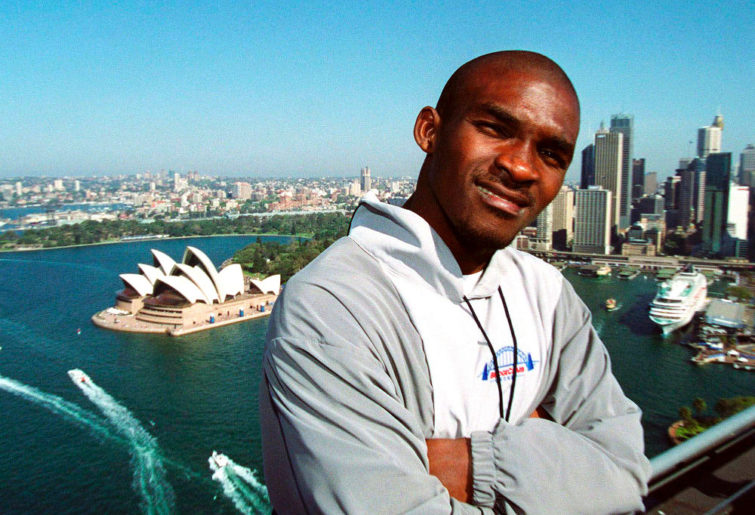
The Olympics are a stage where the world’s greatest athletes showcase their incredible talents, pushing the boundaries of human potential. While records are often broken and champions crowned, the true spirit of the Olympics lies in the stories of determination, courage, and perseverance.
One such story that captivated the world was that of Eric Moussambani, nicknamed “Eric the Eel.” Moussambani’s journey from a small town in Equatorial Guinea to the 2000 Sydney Olympics is a tale of sheer determination and the indomitable human spirit.
Early Life and Olympic Entry
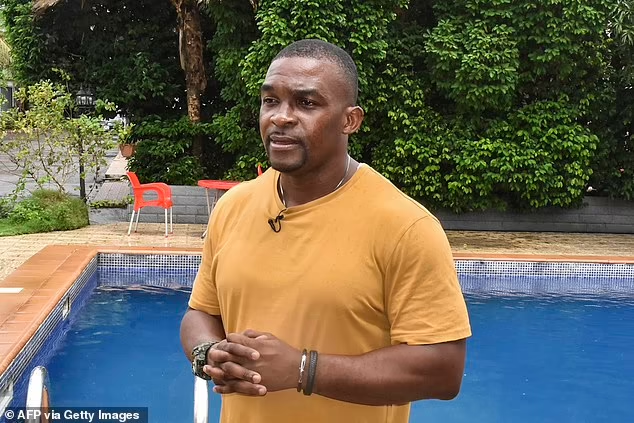
Eric Moussambani Malonga was born in Equatorial Guinea on May 31, 1978. Growing up in a country with limited resources and training facilities, Moussambani never imagined he would one day compete on the world’s biggest sporting stage. His foray into swimming began just eight months before the Sydney Olympics, inspired by a radio announcement calling for athletes to represent Equatorial Guinea.
With no prior experience in an Olympic-sized swimming pool, he began training in a lake and later moved to a 12-meter hotel pool in Malabo, where he could practice for an hour each morning.
Thanks to the International Olympic Committee’s wildcard program, designed to encourage participation from developing nations, Moussambani earned a spot at the Olympics. This initiative aimed to promote inclusivity and provide opportunities to athletes from countries with limited access to advanced training facilities.
Read: Rena Wakama: First Female Coach to Win Women’s Afrobasket
The Legendary Race at Syndey Olympics 2000
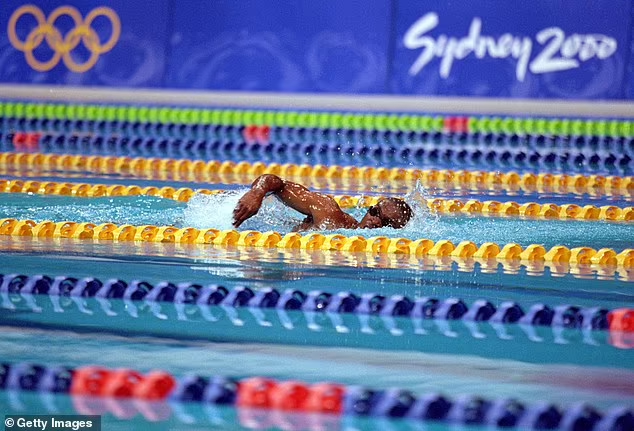
Moussambani’s moment of fame came on September 19, 2000, during the 100-meter freestyle heats. The odds were stacked against him; he had never seen an Olympic-sized pool before arriving in Sydney. His heat included competitors from Niger and Tajikistan, both of whom were disqualified for false starts, leaving Moussambani to swim alone.
The race began, and it quickly became apparent that Moussambani was struggling. The gap between his pace and Olympic standards grew glaringly obvious as he swam. His time of 1:52.72 was more than twice the world record time of 47.84 seconds set by Pieter van den Hoogenband in the semifinals. The final 15 meters of the race were particularly grueling for Moussambani as fatigue set in, and he barely managed to keep going without touching the lane ropes, which would have led to disqualification.
Despite the slowest time in Olympic history for the event, Moussambani completed the race, setting a new personal best and a national record for Equatorial Guinea. The crowd erupted in applause, recognizing his sheer effort and determination.
Media Sensation and Continued Career
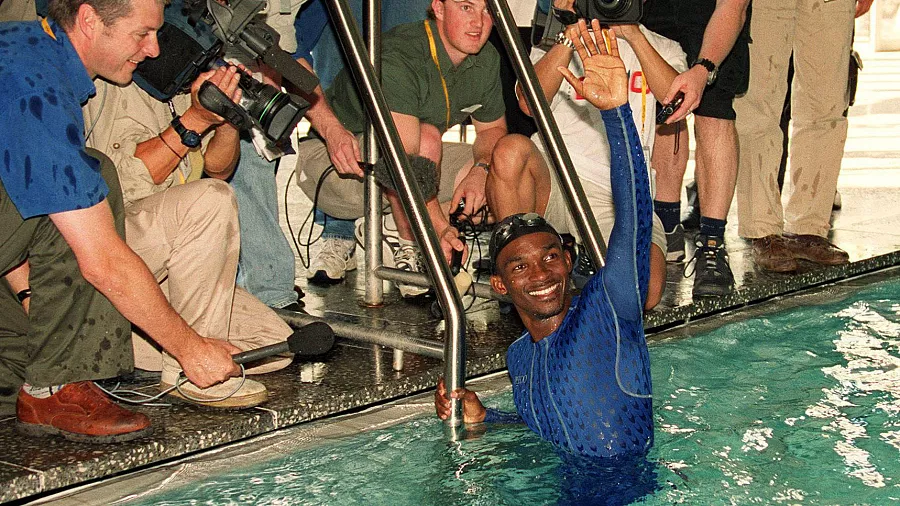
Eric Moussambani’s performance quickly turned him into an international media sensation. The world was captivated by his determination and the purity of his Olympic spirit. His story overshadowed many of the faster times and more traditional victories at the Games. Alongside Moussambani, his compatriot Paula Barila Bolopa, who competed in the women’s 50-meter freestyle, also gained attention for her determination despite finishing with the slowest time in Olympic history for that event.
After the Olympics, Moussambani continued to swim competitively. In 2001, he competed in the 50-meter freestyle at the World Aquatics Championships in Fukuoka, Japan, finishing 88th out of 92 athletes but setting another national record. Despite improving his personal best to under 57 seconds in the 100-meter freestyle, administrative issues prevented him from competing in the 2004 Olympics.
Read: Nigerian Doctor, Fola David, Sets New Guinness World Record for Largest Drawing
Legacy and Coaching Career
Eric Moussambani’s legacy extends far beyond his initial Olympic appearance. In March 2012, he was appointed as the coach of Equatorial Guinea’s national swimming team. His journey from an inexperienced swimmer to an Olympic competitor and national coach is a source of inspiration for athletes in his home country and people around the world. His influence has significantly contributed to the development of swimming in Equatorial Guinea, which now boasts two Olympic-sized swimming pools, a testament to the sport’s growth in the country.
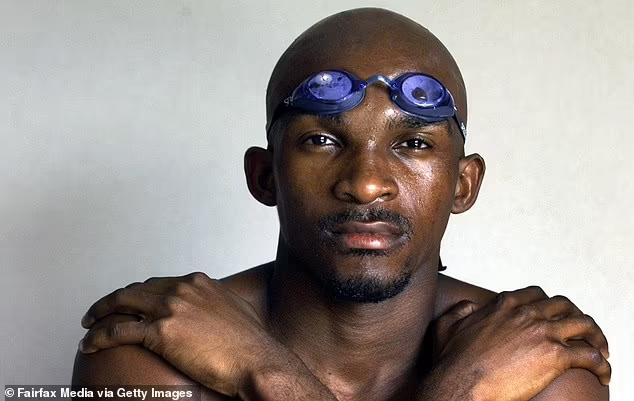
Moussambani’s story powerfully reminds us that the Olympics are not just about winning but about participating and striving to do one’s best. His perseverance and dedication have made him a national hero and a symbol of the transformative power of sport.
Eric Moussambani’s story is a remarkable example of the Olympic spirit – a spirit that celebrates participation, effort, and the courage to dream big despite overwhelming odds. His journey from a novice swimmer to an Olympic competitor and national coach continues to inspire and remind us of the true meaning of sportsmanship.
Visit our page to read more inspiring stories like Eric Moussambani’s and stay updated on remarkable athletes who redefine the boundaries of possibility. Stay connected and be inspired by the incredible journeys of athletes from around the world.
